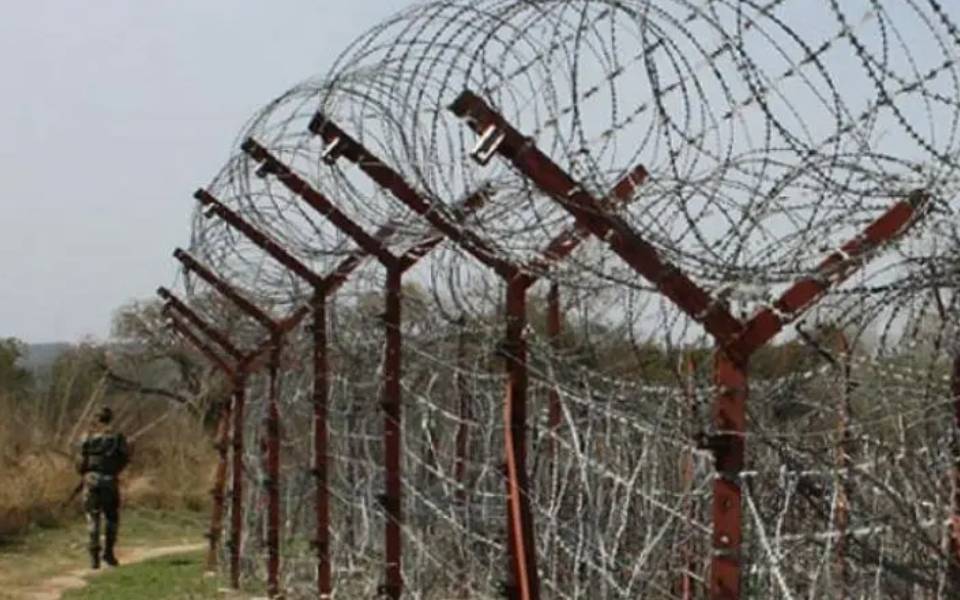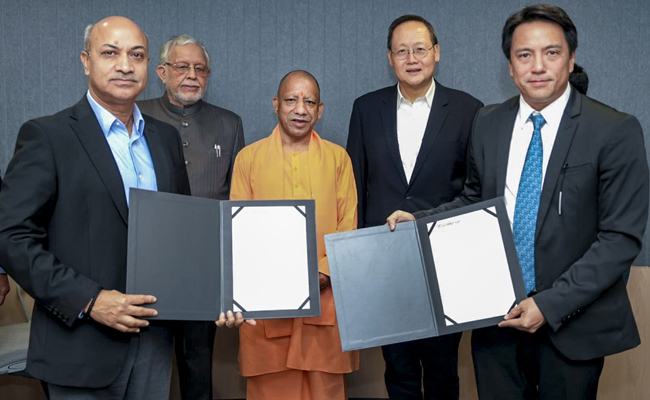New Delhi/Kolkata, Nov 5: The Border Security Force (BSF) has undertaken a unique experiment of installing beehives on the India-Bangladesh border fence in West Bengal to stop instances of cutting the hedge for cattle smuggling and other crimes, besides generating livelihood for the locals.
The first-of-its kind initiative was launched recently by the BSF's 32nd battalion in the border areas of Nadia district with an aim of ensuring border security and helping the local populace through apiculture, a senior officer said.
India and Bangladesh share a 4,096-km frontier, with West Bengal accounting for about 2,217 km.
The Ayush ministry has been roped in by the BSF for the project. The ministry has provided the border-guarding force with the beehives and required expertise to fix those on the alloy-made "smart fence".
Sujeet Kumar, Commandant of the 32nd BSF battalion who conceptualised the idea, told PTI that the force has undertaken the initiative under the Centre's "Vibrant Village Programme" (VVP) and gone a step further by requesting the Ayush ministry to provide it with medicinal plants that bear flowers and can be planted around these bee boxes so that the bees can pollinate in abundance.
"The idea of tying beehives to the India-Bangladesh border fence was launched on November 2. The BSF will ensure that these bee boxes are accessible to the locals engaged in apiculture and there has been a very warm response from the villagers to this initiative," he said.
Officials said the border areas under the South Bengal frontier of the BSF in Nadia district are prone to cross-border crimes like cattle, gold, silver and narcotics smuggling, and there have been instances in the past when miscreants and smugglers have either cut or attempted to cut the fence for their illegal activities.
The beehives on the fence will be a deterrent for the smugglers trying to cut the fence as any such attempt will disturb the bees and a swarm attack of the bees can seriously injure them, a BSF official explained.
While the exact numbers cannot be disclosed, the bee boxes are being put on the fence using a wooden support frame at regular intervals and in smuggling-prone vulnerable areas, the official said, requesting anonymity.
He said the Ayush ministry has provided the BSF with saplings of medicinal plants like tulsi, ekangi, satmuli, ashwagandha, aloe vera and the force personnel, along with the locals, are planting those in the border areas.
Mustard too is being planted and a public camp was recently held in Kadipur village of Nadia where the locals were informed that the honey that they extract from these beehives will be sold through the established setup and shops of the BSF Wives' Welfare Association. The profits made from the sale of the honey will go to the locals, the official said.
Ayush ministry officials have also told the BSF that the locals have informed them about the Mango trees in the area not bearing good-quality fruits, but due to beekeeping in the border area, these plants could start producing good-quality fruits, which will help increase the income of the villagers.
Honeybees hover over flowers to collect food and as pollinators, play a vital role in the production of many crops that are needed to feed the world's population. Bees are responsible for pollinating almost all crops worldwide, including fruits, vegetables and nuts. It has been estimated that without bees, global crop yields could decrease by up to 35 per cent, the officials said, quoting Ayush ministry experts.
The BSF is the designated central force tasked with guarding the India-Bangladesh front. The "Vibrant Village Programme" launched recently by the Union government aims to ensure all-round development of the far-flung and remotely-located regions on the front.
Let the Truth be known. If you read VB and like VB, please be a VB Supporter and Help us deliver the Truth to one and all.
Singapore/Lucknow (PTI): Uttar Pradesh is ready with land bank, business-focused policies and safety and security, Chief Minister Adityanath told investors in Singapore on Tuesday on a day he met the country's top leaders, including Deputy Prime Minister Gan Kim Yong.
On the second day of his official visit to Singapore, Adityanath met the country's Deputy Prime Minister and Minister for Trade and Industry Gan Kim Yong, and Coordinating Minister for National Security and Home Affairs Minister K Shanmugam, official sources said here.
Held in the presence of a high-level delegation, the discussions focused on leveraging Singapore's expertise in urban planning, internal security architecture and digital governance to help Uttar Pradesh achieve the target of becoming a one-trillion-dollar economy.
During talks with Gan Kim Yong, the chief minister emphasised on UP's pro-business environment and highlighted the state's vast land bank and improved connectivity expected from after the Noida International Airport becomes operational.
The meeting also explored the possibility of Singaporean companies establishing industrial townships in the Delhi-NCR, with particular focus on semiconductor manufacturing and green hydrogen modules.
During his interaction with K Shanmugam, Adityanath discussed modernisation of the state's law and order framework, with emphasis on Singapore's technology-integrated policing model and disaster management protocols.
Speaking to investors, Adityanath listed infrastructure, logistics, MROs among other projects in the pipeline in the state, and said he held more than 100 meetings with the business community during his visit to Singapore.
The UP CM also noted that Singapore investors were committed to a large number of projects in India and UP, including the Ganga Expressway.
Business leaders Adityanath met included CEO and chairpersons of Temasek, Government Investment Corp (GIC), Singapore Airport Terminal Services, and Blackstone.





